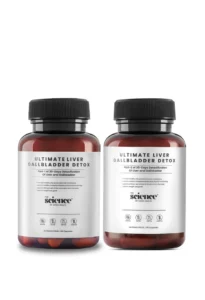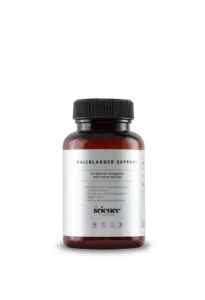Does smoking affect liver health? The clear answer is yes. Smoking is widely known for harming the lungs and the heart, but its hidden damage to the liver is equally dangerous. Every cigarette delivers a mix of toxins that overwhelm the liver, impairing its natural ability to filter harmful substances and repair itself.
The liver is the body’s cleansing organ, responsible for detoxification, metabolism, and overall balance. When it becomes burdened by the thousands of chemicals in cigarette smoke, its ability to function declines, leading to serious complications. These range from fatty liver disease and cirrhosis to a significantly higher risk of liver cancer.
Fortunately, the liver is remarkably resilient and capable of healing when supported with the right lifestyle changes. This article explores in detail how smoking harms the liver, why quitting makes such a difference, and what steps you can take to protect and restore this vital organ.
Understanding the Liver’s Role in Your Body
To fully appreciate the impact of smoking, it is essential to understand the functions of the liver. The liver is often described as the body’s internal laboratory, working tirelessly to maintain health. It processes nutrients from food, converts them into energy, produces bile to aid digestion, and filters harmful toxins from the bloodstream. It also plays a key role in regulating hormones and supporting the immune system.
Because it manages so many responsibilities, the liver is vulnerable to toxic overload. Cigarette smoke contains more than seven thousand chemicals, many of which are poisonous. Each time you smoke, these substances travel through the bloodstream and reach the liver, which must break them down and attempt to remove them. Over time, this process causes oxidative stress, inflammation, and long-term damage. Understanding these functions makes it easier to see why the question does smoking affect liver health is so important.
Does Smoking Affect Liver Health?
Yes, smoking does affect liver health in a serious and measurable way. Cigarette smoke introduces toxins such as nicotine, carbon monoxide, and tar into the body. These toxins place an extra burden on the liver, forcing it to work harder to detoxify the blood. The result is gradual injury to healthy liver cells, loss of efficiency in filtering harmful substances, and an increased risk of disease.
Medical studies have confirmed that smokers are more likely to suffer from chronic liver conditions, including fatty liver disease, fibrosis, and cirrhosis. The risk of liver cancer also rises significantly. When combined with other factors such as alcohol use or obesity, the damage can progress rapidly.
Therefore, when someone asks does smoking affect liver health, the answer is not only yes, but it is one of the most underestimated risks of smoking.
How Smoking Damages the Liver
Smoking damages the liver in multiple ways, and these harmful effects accumulate over time.
Overloading the Liver with Toxins
Each cigarette contains thousands of harmful substances. The liver must filter and process these chemicals, which strains its detoxification capacity. Constant exposure leads to inflammation and reduced ability to remove toxins from the body.
Oxidative Stress and Inflammation
Chemicals from smoking trigger the release of free radicals. These unstable molecules attack liver cells, leading to oxidative stress and chronic inflammation. This damage increases the risk of scarring, also known as fibrosis, and eventually cirrhosis.
Increased Risk of Liver Cancer
Long-term smokers have a much higher chance of developing hepatocellular carcinoma, the most common type of liver cancer. The carcinogenic compounds in cigarette smoke are directly linked to cancer development in the liver.
Worsening of Fatty Liver Disease
Smoking is strongly associated with non-alcoholic fatty liver disease. It promotes fat accumulation in the liver and speeds up the transition from a mild condition to advanced liver damage.
Complications in Pre-Existing Conditions
For people with viral hepatitis B or C, smoking accelerates liver damage. It also reduces the success rates of liver transplants and increases the risk of complications after surgery.
These facts make it clear that the question does smoking affect liver health has only one answer: it causes extensive and preventable damage.
Smoking Combined with Other Risk Factors
The dangers of smoking are multiplied when combined with other risk factors:
- Smoking and alcohol together cause significantly higher rates of cirrhosis and liver failure
- Smoking in people with obesity or diabetes worsens non-alcoholic fatty liver disease and increases inflammation
- Smoking with regular medication use can lead to higher liver toxicity, as the organ is forced to process both drug compounds and cigarette chemicals
- Smoking in patients with viral hepatitis accelerates liver scarring and worsens long-term outcomes
This combination effect demonstrates why quitting smoking is essential for anyone concerned about liver health.
Secondhand Smoke and Liver Health
The question does smoking affect liver health is not limited to smokers themselves. Even those exposed to secondhand smoke face risks. Research has shown that non-smokers living in smoke-filled environments have a higher chance of developing fatty liver disease. Children exposed to secondhand smoke may also experience liver inflammation and are more likely to develop metabolic problems as they grow older. The liver is sensitive to toxins, regardless of whether they come directly from a cigarette or from the surrounding air.
Can the Liver Heal After Quitting Smoking?
One of the most remarkable qualities of the liver is its ability to regenerate. The moment you stop smoking, the liver begins repairing itself.
- Within the first month, liver inflammation begins to reduce, and detoxification improves
- By three months, blood circulation increases, making it easier for the liver to function efficiently
- After six months to one year, fat accumulation in the liver decreases, and damaged tissues start repairing
- Over two years or more, the risk of liver cancer slowly declines, especially if other risk factors are controlled
This ability to heal shows that even after years of smoking, quitting can still protect and restore liver health.
Steps to Protect and Restore Liver Health
Protecting your liver requires a consistent and holistic approach.
- Quit smoking completely to reduce further toxic exposure
- Follow a nutrient-rich diet with foods like leafy greens, garlic, turmeric, green tea, and berries that support liver detoxification
- Maintain regular physical activity to lower fat accumulation in the liver and improve metabolism
- Avoid excessive alcohol consumption to prevent combined damage
- Minimize exposure to harmful chemicals in food and environment
- Schedule regular medical check-ups and liver function tests for early detection of issues
By taking these steps, you give your liver the support it needs to regenerate and stay strong.
Additional Liver Support
Alongside quitting smoking, many people choose natural supplements to strengthen liver function. One option is Liver and Gall Bladder Support, a herbal formula designed to promote detoxification, improve bile flow, and enhance overall liver wellness. Supporting your liver with both lifestyle changes and natural remedies can help accelerate recovery and protect long-term health.
Conclusion
So, does smoking affect liver health? Yes, smoking damages liver cells, increases the risk of cancer, worsens fatty liver disease, and accelerates scarring. But the story does not end with damage. Because of its extraordinary capacity to heal, the liver can recover significantly once smoking is stopped and healthy habits are embraced. Your liver is not only an organ; it is the foundation of your vitality and overall wellbeing. Protecting it is one of the most important health decisions you can make.
If you are ready to reclaim your health, the journey begins with quitting smoking and healing your liver naturally. Within just a few months, you can experience improved energy, cleaner detoxification, and renewed vitality. Take the first step toward restoring balance and strength in your body. Start your healing journey today with Smriti Kochar’s Ultra-Wellness Program and allow your body to repair, restore, and thrive.
Read Our Latest Blogs
Is Apple Cider Vinegar Good For Fatty Liver | Is Sugarcane Juice Good For Fatty Liver | Which Juice Is Good For Liver | Does Dengue Affect Liver | How Many Grades Of Fatty Liver | What Is Good For Liver | How To Improve Gut Health Naturally India | How To Have Good Gut Health | Is Beer Good For Gut Health | Why Is Gut Health Important | How To Improve Gut Health India
Frequently Asked Questions
Alcohol is a well-known cause of liver disease, but smoking adds a toxic burden that worsens the effects of alcohol. When combined, the risk of cirrhosis and liver cancer becomes far greater than either factor alone.
Yes, smoking is a significant risk factor for non-alcoholic fatty liver disease. It increases fat deposits in liver cells and speeds up disease progression, especially in people who are overweight or diabetic.
Some healing begins within weeks of quitting, but major recovery usually takes several months to years, depending on the extent of prior damage. Early quitting always leads to better long-term outcomes.
Yes, secondhand smoke can harm the liver in both children and adults. Continuous exposure increases the risk of fatty liver disease and chronic inflammation.
Yes, smoking negatively affects transplant outcomes. Patients who smoke before or after a liver transplant face more complications and reduced survival rates.
Nicotine and its by-products increase oxidative stress in the liver. While nicotine is not the only harmful chemical in cigarettes, it contributes to overall liver damage.
Antioxidants from foods such as berries, turmeric, and green tea can reduce oxidative stress, but they cannot fully reverse smoking damage unless smoking is stopped.
Foods rich in antioxidants and anti-inflammatory compounds support liver healing. These include spinach, kale, garlic, turmeric, ginger, citrus fruits, and green tea. Combined with quitting smoking, these foods help restore normal liver function.






